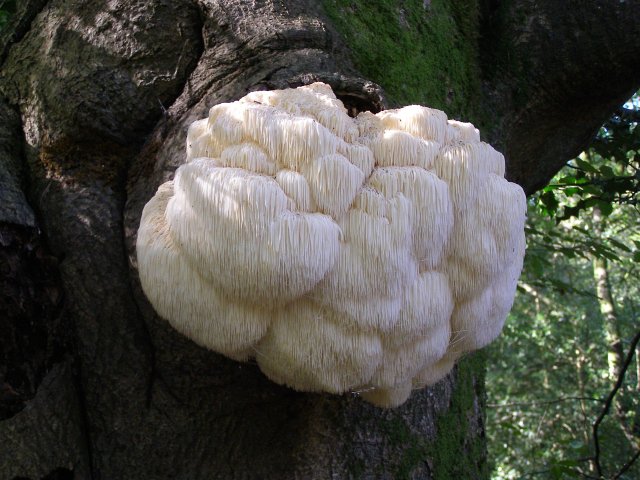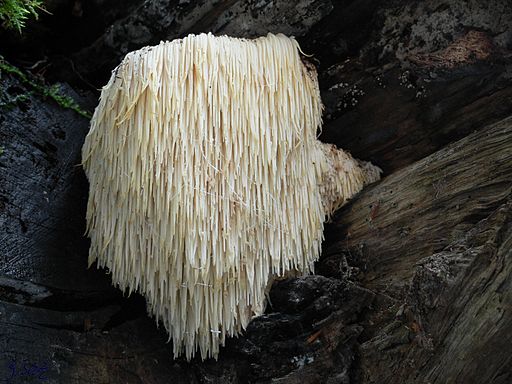 The indoleamines are are group of neurotransmitters synthesised from the dietary amino acid tryptophan. Tryptophan is an essential amino acid that can only be obtained from the diet. The important human indoleamines include serotonin, 5-hydroxytryptophan and melatonin. Dietary tryptophan is absorbed from the gastrointestinal tract, and then crosses the blood brain barrier. From here it is synthesised to 5-hydroxytryptophan, then to serotonin, and finally to melatonin. The indole type neurotransmitters may be important in mood modulation because it has been suggested that low levels of serotonin, in certain parts of the brain, may be a cause of depression or anxiety. In addition, melatonin in central to regulating the correct sleep-wake cycle, and this cycle can often become disrupted in those with depression or anxiety. Certain treatments for depression and anxiety therefore try to address the imbalance to the indolamine neurotransmitters through supplying the indoleamine or its precursor molecule in the diet.
The indoleamines are are group of neurotransmitters synthesised from the dietary amino acid tryptophan. Tryptophan is an essential amino acid that can only be obtained from the diet. The important human indoleamines include serotonin, 5-hydroxytryptophan and melatonin. Dietary tryptophan is absorbed from the gastrointestinal tract, and then crosses the blood brain barrier. From here it is synthesised to 5-hydroxytryptophan, then to serotonin, and finally to melatonin. The indole type neurotransmitters may be important in mood modulation because it has been suggested that low levels of serotonin, in certain parts of the brain, may be a cause of depression or anxiety. In addition, melatonin in central to regulating the correct sleep-wake cycle, and this cycle can often become disrupted in those with depression or anxiety. Certain treatments for depression and anxiety therefore try to address the imbalance to the indolamine neurotransmitters through supplying the indoleamine or its precursor molecule in the diet.

Hericium erinaceus is an edible mushroom also called Lion’s mane or the hedgehog mushroom. The fruiting bodies of the mushroom have been shown to have medicinal properties and the mushroom has a long history of use in Traditional Chinese Medicine and Traditional Japanese Medicine, where the mushroom is called hóu tóu gū and yamabushitake, respectively. Lion’s mane mushrooms may have neuroprotective effects when consumed, which explains their traditional use in treating neurodegenerative diseases including dementia and cognitive dysfunction. The ability of Lion’s mane to improve cognitive function was demonstrated in a study conducted on elderly Japanese men. Consumption of the mushroom significantly improved the cognitive function of the subjects and produced no adverse effects. In rats, extracts of Lion’s mane were effective at accelerating the regeneration of experimentally induced nerve damage. In cell culture studies, Lion’s mane extracts also demonstrated the ability to promote normal neuronal repair mechanisms. Image from: By Lebrac (Own work) [CC BY-SA 3.0 (http://creativecommons.org/licenses/by-sa/3.0)], via Wikimedia Commons.
For example, supplements can be used as a source of tryptophan, 5-hydroxytryptophan and melatonin. However, a number of natural sources of these indoleamines are available. Most plants contain reasonable concentrations of melatonin, and a high plant diet can provide an intake of melatonin. In addition, hops (Humulus lupulus) may contain phytochemicals that bind to the melatonin receptor of the brain and this may help regulate the sleep-wake cycle. The griffonia plant (Griffonia simplicifolia) plant contains high amounts of 5-hydroxytryptophan which can increase serotonin synthesis. However, one of the best sources of dietary indoleamine and their precursors may be the fruiting body of edible mushrooms. Mushrooms are abundant in a number of indoleamines including tryptophan, 5-hydroxytryptophan, tryptamine, serotonin and melatonin. Edible mushrooms can therefore be considered a medicinal source of indolamine neurotransmitters that have the potential to treat those with depression and anxiety.
Mushrooms are the fruiting bodies of fungi. Consumption of mushrooms for their energy and their medicinal effects has a long history throughout the World, just as with plants. However, fungi are not from the same kingdom as plants. Technically therefore the chemicals contained within mushrooms are not phytochemicals, as phytochemicals must come from plants (‘phyto’ meaning of or relating to plants). However, within the realms of traditional medicine, mushrooms are considered an important source of natural medicine and are often grouped together with plant treatments. Consumption of whole mushrooms for the indoleamines they contain has the benefits that mushrooms contain a range of other nutrients that may promote health including being a good source of vitamin D and certain B vitamins, which may also have mood enhancing effects. Mushrooms are therefore an important functional food that may be useful in the treatment of depression and anxiety.

It is not clear which components of the Lion’s mane mushroom are responsible for the beneficial effects on mood and cognition. However, a number of compounds including β-glucans and other polysaccharides, lipids and phenolic compounds have been isolated. Some of these compounds may be involved in the neuroprotective effects of the mushrooms. As with other mushrooms, Lion’s mane may also be a good source of indoleamines, which may explain the mood enhancing effects. Image From: Jim Champion [CC BY-SA 2.0 (http://creativecommons.org/ licenses/by-sa/2.0)], via Wikimedia Commons.
Studies have shown that mushrooms contain bioavailable indoleamines even following cooking. For example, Cantharellus cibarius (chanterelle), Boletus badius (bay bolete), Lactarius deliciosus (red pine mushroom), Macrolepiota procera (the parasol mushroom), Pleurotus ostreatus (oyster mushroom), and Suillus bovinus (Jersey cow mushroom) have been shown to all contain indole compounds. Of these mushrooms, the chanterelle mushroom contained 29.6 mg per 100 grams dry weight serotonin. Other mushrooms that have been shown to contain high amounts of indolamine neurotransmitters include Armillaria mellea (honey fungus) and Boletus edulis (penny bun). Serotonin from foods cannot cross the blood brain barrier, but it has been shown to regulate intestinal function. Because the gut has an intricate connections with the central nervous system through both hormonal and neuronal connections, dietary sources of serotonin may be able to influence the brain indirectly.
However, tryptophan, 5-hydroxytryptophan and melatonin can cross the blood brain barrier and so the other indoleamines present in mushrooms have affect the central nervous system directly. There may be some degradation of the indoleamines in mushrooms during cooking, but reasonable levels are still present following the application of heat. This is an important consideration as most mushrooms present in the diet are cooked. Although mushrooms are a good source on indoleamines, research showing effects on mood are very limited in the literature. However, one study conducted on human subjects assessed the effects of Hericium erinaceus (Lion’s mane) on depressive symptoms in female subjects with the symptoms of the menopause. The results showed that consumption of Lion’s mane in cookies, consumed for 4 weeks, significantly improved the mood of the subjects. The authors concluded that Lion’s mane shows the potential to reduce anxiety and depression in human subjects.
Eat Well, Stay Healthy, Protect Yourself
RdB
